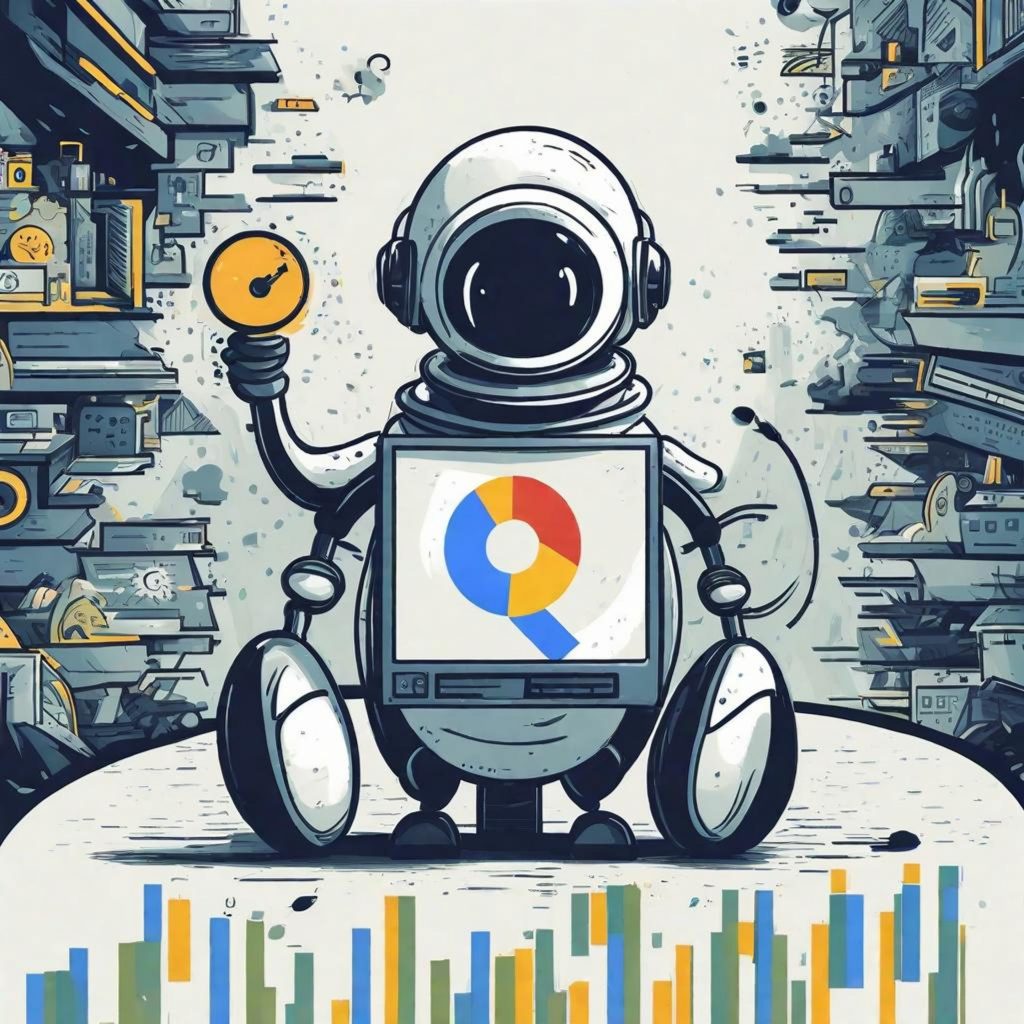Does Google Penalise AI Content? Learn How to use AI Generated Content that is SEO Compliant

Does Google Penalise AI Content?
With the emergence of AI-generated articles and blogs, there is a growing concern among content creators and marketers about whether Google penalizes AI content. In this article, we will delve into this topic and explore the impact of AI-generated content on search engine rankings and find the answer to ‘does google penalise AI content?
Can Google Detect AI
Can Google effectively detect AI-generated content? With its extensive repertoire of algorithms and machine learning capabilities, Google has indeed made substantial strides in distinguishing AI-generated material from human-created content. The search engine giant has implemented measures to identify patterns that are characteristic of AI-generated text, allowing it to promptly flag such content.
By leveraging deep learning techniques and natural language processing, Google is able to analyze linguistic nuances, semantic structures, and syntax trends, ensuring a high level of accuracy in identifying AI-driven content. This approach enables Google to maintain the integrity of its search results by prominently displaying authentic, human-generated material that users can trust.
Nonetheless, it is worth highlighting that AI technologies are rapidly evolving, and while Google’s detection methods are continually improving, the landscape of AI-generated content might present novel challenges.
Maintaining a delicate balance between allowing the benefits of AI-generated content and upholding the credibility of search results is an ongoing endeavor for Google, reflecting its commitment to delivering reliable and accurate information to its users.
The Future of AI Content – AI Tools for Content Creation
AI has the potential to revolutionize content creation by assisting in tasks such as topic research, content generation, and even proofreading. Content creators can leverage AI tools to streamline their workflow, saving time and resources. However, it is crucial to remember that AI should not replace human creativity and expertise. The future of AI-generated content lies in its collaboration with human creators.
Understanding AI-Generated Content
AI-generated content refers to articles, blogs, and other forms of written content that are produced by machines, using complex algorithms and natural language processing techniques. These AI systems are capable of analyzing vast amounts of data and generating human-like text that is often indistinguishable from content written by humans.
The Google Algorithm
Google, being the most popular search engine, utilizes a sophisticated algorithm to rank websites and determine their visibility in search results. The algorithm takes into account numerous factors such as relevance, quality, user experience, and trustworthiness. While the exact workings of the algorithm are closely guarded secrets, it is designed to deliver the most relevant and authoritative content to users.
Google’s Stance on AI Content
Google has not explicitly stated that AI-generated content is penalized. However, their emphasis on providing high-quality and original content raises questions about the potential impact of AI content that provides value on search engine rankings. Google’s primary objective is to offer valuable and relevant information to users whether it has been created by human or ai.
AI-generated content is becoming increasingly prevalent and if it can produce unique quality content then it may not matter to search engines like Google.
Quality and Relevance Matter
Creating content that fulfills the needs of users is crucial for achieving higher search engine rankings. Even though AI can generate text, it may lack the depth of understanding, creativity, and context that human writers bring to their work. Consequently, AI-generated content may fall short in terms of providing value and relevance to users, potentially affecting its visibility in search results.
Relevance and User Intent
Relevance has always been a critical factor in SEO, and AI-generated content should not undermine this. Content must align with user intent, providing relevant and helpful information. AI can assist in understanding user intent by analyzing search patterns and providing insights. However, it is important for content writers to utilize AI tools as aids, not replacements, to ensure the content is produced with user intent in mind.
Balancing AI and Human Input
While using ai-generate content can save valuable time and money, it is the human touch that adds depth and creativity. Google values content that demonstrates qualities like expertise, authority, and trust (E-A-T). Content created primarily to manipulate search engines can be penalized. By combining the strengths of AI and human input, content created by humans and content created by artificial intelligence can produce high-quality, valuable content that aligns with Google’s guidelines.
Impact of AI Content on User Experience and Engagement
User experience is a key factor that Google considers when ranking websites. AI-generated content may lack the ability to engage readers emotionally and connect with their emotions, which could impact user experience. Human-written content often incorporates storytelling, personal anecdotes, and relatable examples, making it more compelling and engaging for readers.
Trustworthiness and Authenticity
Another important aspect that Google values is the authenticity and trustworthiness of content. AI-generated content may lack the credibility and expertise that human-written content can offer. Content created by humans is often backed by research, industry knowledge, and personal experiences, making it more reliable and trustworthy in the eyes of both users and search engines.
Google’s Helpful Content Update: Putting Users First
Google, the dominant search engine, continuously updates its algorithms to prioritize delivering the most helpful and relevant content to users. The helpful content update aims to ensure that high-quality, informative content receives the recognition it deserves. Websites that provide value to users are rewarded with better visibility and higher rankings.
E-E-A-T: Experience, Expertise, Authority, and Trust
With the helpful content update (HCU), Google emphasizes the importance of expertise, authority, and trustworthiness (E-A-T) in content. Websites that demonstrate a high level of expertise and authority on a subject are deemed more reliable by Google’s algorithms. This means that content writers should strive to establish their expertise and provide accurate information to enhance their online reputation.
User-Centered Approach
Google’s HCU also focuses on placing users at the center of content creation. By understanding users’ intent and delivering relevant content, websites can improve their visibility and user engagement. Crafting content that addresses users’ needs, answers their questions, and provides valuable information increases the likelihood of being rewarded by Google’s algorithms.
The Synergy of AI Generated Content and Google’s Helpful Content Update
AI generated content and Google’s HCU are not mutually exclusive; in fact, they can work in tandem to the advantage of content creators and users alike.
Streamlined Content Creation
AI generated content streamlines the content creation process, allowing content authors to produce vast amounts of high-quality content more efficiently. By leveraging this technology, content creators can focus on providing valuable insights and enhancing their expertise, which aligns with Google’s emphasis on expertise and authority.
Personalized Content Recommendations
AI algorithms can analyze user behavior and preferences to deliver personalized content recommendations. This enhances the user experience by providing relevant and engaging information. Google’s HCU rewards websites that prioritize user needs and preferences, making personalized content a win-win for content writers and users.
Human Touch and Creativity
While AI generated content provides efficiency and accuracy, it is crucial to remember that it lacks the human touch and creativity. To make content stand out, content makers should inject their unique perspectives and creativity into the AI generated material. By adding a personal touch, content writers can further establish their authority and trustworthiness in the eyes of Google’s algorithms.
Conclusion
While Google has not explicitly stated that AI-generated content is penalized, it is clear that there are significant challenges for AI in matching the quality, relevance, user experience, and trustworthiness of human-written content. Content authors should strive to produce high-quality, original, and engaging content that resonates with their target audience. By focusing on these factors, content writers can enhance their chances of achieving better search engine rankings and maximizing organic visibility.

I am a self-motivated, passionate website designer and developer. I have over ten years of experience in building websites and have developed a broad skill set including web design, frontend and backend development, and SEO.
Using my growing knowledge base I have built my own company (scriptedart.co.uk) creating websites, e-commerce stores and producing custom graphics and web app functionality for a range of local businesses.

